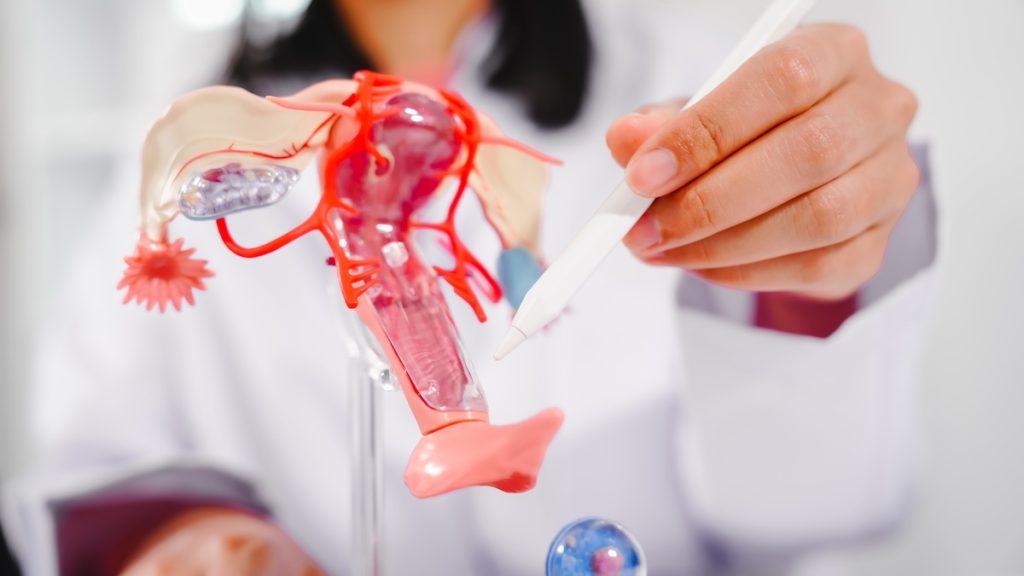Understanding Interstitial Cystitis & Bladder Health
Posted By:
Dr. Michael Coyle, DO FACOOG, FPMRS

Interstitial cystitis is a chronic condition that causes bladder and pelvic pain. This disease is also known as “painful bladder syndrome.” For people with this condition, pain in the bladder from interstitial cystitis can be mild or severe and may be triggered by other events such as menstruation, sexual intercourse, exercise or sitting too long.
People who experience interstitial cystitis may feel the urge to go to the bathroom more often than is necessary and may urinate in smaller amounts than other people. Interstitial cystitis causes signals from the bladder to get mixed up so that people feel like they need to urinate before the bladder is full. This pain and frequent need to use the bathroom can cause frustration and reduce a patient’s quality of life.
Dr. Coyle at Coyle Institute offers advanced, non-surgical treatments to relieve symptoms. We understand how conditions like interstitial cystitis can impact your life, creating difficulty and discomfort. If you have interstitial cystitis, we’re here to help.
Symptoms of Interstitial Cystitis
There are many symptoms of interstitial cystitis to watch for, including:
- Frequent, urgent need to urinate
- Chronic pelvic or bladder pain, relief after urinating
- Painful intercourse
- Discomfort after urination
- Burning sensation in the bladder
- Urinating in small amounts throughout the day
Symptoms of interstitial cystitis can resemble a urinary tract infection; however, interstitial cystitis is not a urinary tract infection. Some patients experience more severe symptoms than others, and some endure periods when there are no symptoms at all.
If you have this condition, you may experience severe pain before urinating or only mild discomfort. If you think that you may have interstitial cystitis, get a diagnosis. This is the first step to alleviating your discomfort.
Treatment Options at Coyle Institute
There are many treatment options for patients experiencing interstitial cystitis. At Coyle Institute, we help our patients improve their quality of life and overcome the symptoms of this condition. Using non-surgical techniques, we can help you minimize symptoms.
Botox Injections for Bladder Pain
Botox is an injection that can prevent some muscles from moving for a limited time. Botox injections are commonly associated with cosmetic treatments, but Botox can also be used to treat bladder pain as well.
- How It Works: Botox relaxes the bladder muscles, reducing pain and urgency to urinate
- Who It’s For: Patients with IC, overactive bladder or bladder spasms
- What to Expect: Quick in-office procedure with lasting relief
Botox injections are a practical solution that can help patients control symptoms of interstitial cystitis. Botox injections can easily be administered in a short visit to the doctor. Botox can last for months before needing to be administered again.
Prolozone Therapy for Interstitial Cystitis
Prolozone therapy is a non-surgical treatment that can help patients with joint pain. Prolozone therapy can promote healing and reduce inflammation that causes interstitial cystitis.
- How It Works: Ozone-oxygen injections reduce inflammation and promote healing in bladder tissues
- Who It’s for: Patients with chronic bladder pain and persistent IC symptoms
- What to Expect: Prolozone is a regenerative approach that offers long-term relief
Prolozone sessions take about 30 to 40 minutes and may need to be repeated several times. We’ll work with you to ensure that your treatment suits your needs.
Frequently Asked Questions (FAQs)
Is interstitial cystitis curable?
Unfortunately, there is no cure for interstitial cystitis. However, effective symptom management options exist. At Coyle Institute, we offer non-surgical treatments for patients, including Botox injections and Prolozone Therapy.
How long do Botox injections last?
Botox injections last approximately 4 to 6 months for most patients. When the injection wears off, your doctor can administer more injections to bring more relief.
How soon can I see results?
Many patients see results within weeks of treatment from Coyle Institute. After treatments are completed, we’re available to answer questions and address any concerns.
Take the Next Step: Schedule a Consultation
Interstitial cystitis is a condition that can lead to pain, frequent urination and reduced quality of life. You don’t need to live with the discomfort and inconvenience of interstitial cystitis. Coyle Institute offers non-surgical treatments for this condition and a range of others that affect their pelvic health.
To get started with your treatment at Coyle Institute, schedule an appointment to discuss your symptoms. Contact us today with a phone call at 850-637-8258.

